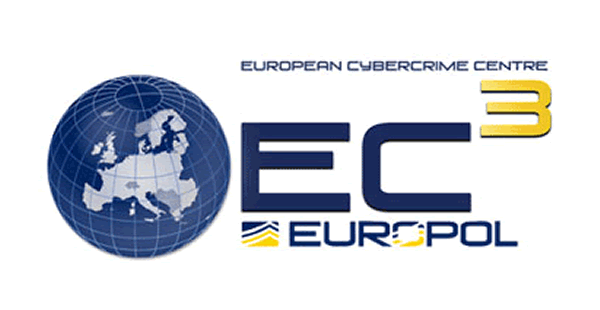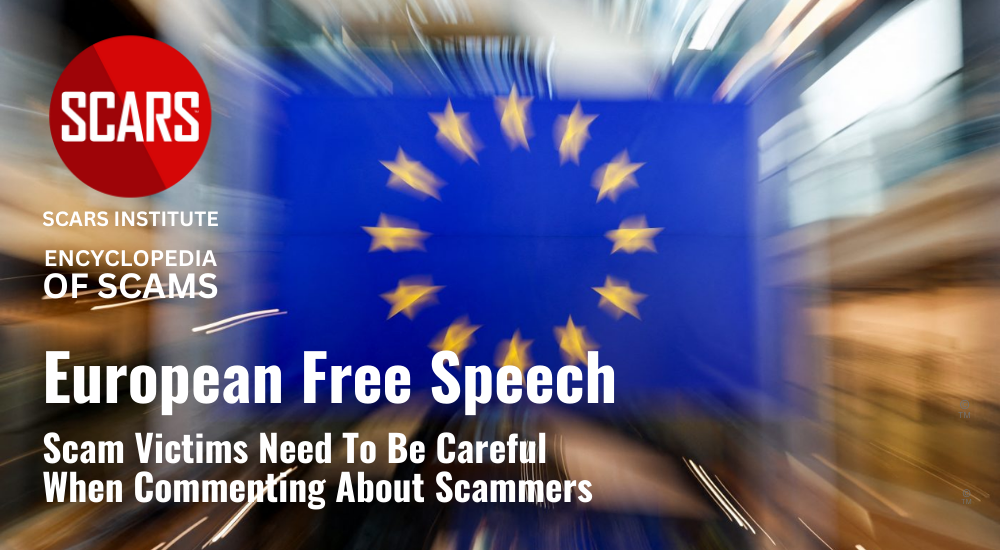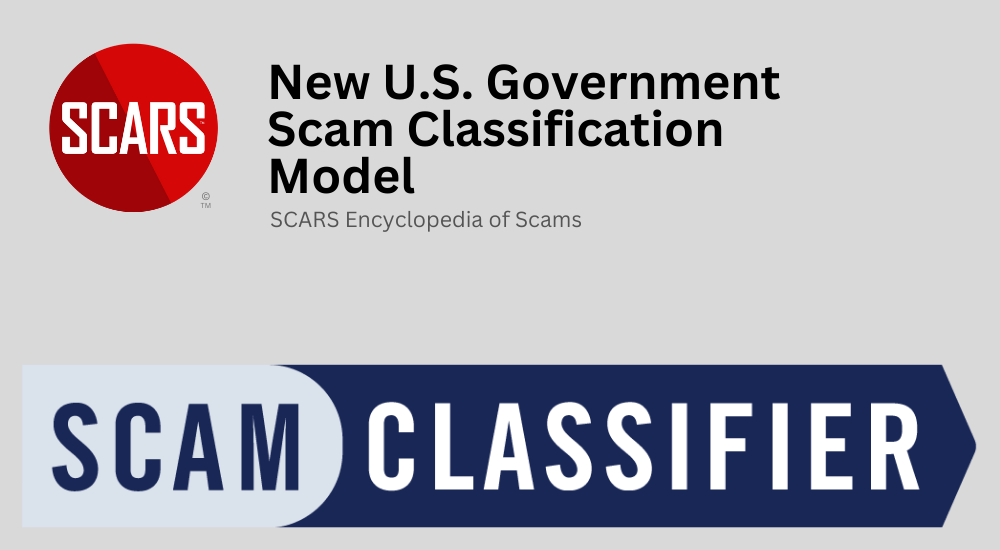
SCARS Institute’s Encyclopedia of Scams™ Published Continuously for 25 Years

The Europol IOCTA 2017 INTERNET ORGANISED CRIME THREAT ASSESSMENT REPORT
The 2017 Internet Organised Crime Threat Assessment (IOCTA) reports how cybercrime continues to grow and evolve.
While many aspects of cybercrime are firmly established, other areas of cybercrime have witnessed a striking upsurge in activity, including attacks on an unprecedented scale, as cybercrime continues to take new forms and new directions. A handful of cyber-attacks have caused widespread public concern but only represented a small sample of the wide array of cyber threats now faced.
This year’s report highlights how cybercrime continues to grow and evolve, taking new forms and directions, as demonstrated in some of the attacks of unprecedented scale of late 2016 and mid-2017.It further highlights the progressive convergence of cyber and serious and organized crime, supported by a professional underground service economy.
The report also describes some of the key challenges faced by law enforcement in terms of investigation and prosecution of cybercrime, highlighting many cross-cutting issues such as e-evidence challenges, and the need for adequate and harmonized legislation to address the specificities of cybercrime. The report goes on to list a number of key recommendations to address the phenomenon of cybercrime and identifies several priority topics to inform the definition of operational actions for EU law enforcement in the framework of the EU Policy Cycle. These include concrete actions under EC3’s three main mandated areas – child sexual exploitation online, cyber-dependent crime, and payment fraud, as well as cross-cutting crime enablers.
As in previous years, the 2017 IOCTA will inform the setting of priorities and help streamline resources within the EU and internationally to respond to cybercrime in an effective and concerted manner. Law enforcement continues to demonstrate that a coordinated, intelligence-led and adaptive approach by competent authorities, involving multiple sectors and partners can result in significant success in preventing cybercrime and mitigating its impact.
UNLIKE THE EQUIVALENT REPORT FROM THE UNITED STATES DEPARTMENT OF JUSTICE, THIS REPORT MENTIONS “ROMANCE SCAMS” BARELY TWICE. EMPHASIZING THAT IT IS NOT YET A SERIOUS FOCUS OF THE EU AND EUROPOL.
-/ 30 /-
What do you think about this?
Please share your thoughts in a comment below!
LEAVE A COMMENT?
Thank you for your comment. You may receive an email to follow up. We never share your data with marketers.
Recent Comments
On Other Articles
- on Reporting Scams & Interacting With The Police – A Scam Victim’s Checklist [VIDEO]: “Yes, this is a scam. For your own sanity, just block them completely.” Feb 25, 15:37
- on Danielle Delaunay/Danielle Genevieve – Stolen Identity/Stolen Photos – Impersonation Victim UPDATED 2024: “She goes by the name of Sanrda John now” Feb 25, 10:26
- on Reporting Scams & Interacting With The Police – A Scam Victim’s Checklist [VIDEO]: “So far I have not been scam out of any money because I was aware not to give the money…” Feb 25, 07:46
- on Love Bombing And How Romance Scam Victims Are Forced To Feel: “I was love bombed to the point that I would do just about anything for the scammer(s). I was told…” Feb 11, 14:24
- on Dani Daniels (Kira Lee Orsag): Another Scammer’s Favorite: “You provide a valuable service! I wish more people knew about it!” Feb 10, 15:05
- on Danielle Delaunay/Danielle Genevieve – Stolen Identity/Stolen Photos – Impersonation Victim UPDATED 2024: “We highly recommend that you simply turn away form the scam and scammers, and focus on the development of a…” Feb 4, 19:47
- on The Art Of Deception: The Fundamental Principals Of Successful Deceptions – 2024: “I experienced many of the deceptive tactics that romance scammers use. I was told various stories of hardship and why…” Feb 4, 15:27
- on Danielle Delaunay/Danielle Genevieve – Stolen Identity/Stolen Photos – Impersonation Victim UPDATED 2024: “Yes, I’m in that exact situation also. “Danielle” has seriously scammed me for 3 years now. “She” (he) doesn’t know…” Feb 4, 14:58
- on An Essay on Justice and Money Recovery – 2026: “you are so right I accidentally clicked on online justice I signed an agreement for 12k upfront but cd only…” Feb 3, 08:16
- on The SCARS Institute Top 50 Celebrity Impersonation Scams – 2025: “Quora has had visits from scammers pretending to be Keanu Reeves and Paul McCartney in 2025 and 2026.” Jan 27, 17:45
ARTICLE META
Important Information for New Scam Victims
- Please visit www.ScamVictimsSupport.org – a SCARS Website for New Scam Victims & Sextortion Victims
- Enroll in FREE SCARS Scam Survivor’s School now at www.SCARSeducation.org
- Please visit www.ScamPsychology.org – to more fully understand the psychological concepts involved in scams and scam victim recovery
If you are looking for local trauma counselors please visit counseling.AgainstScams.org or join SCARS for our counseling/therapy benefit: membership.AgainstScams.org
If you need to speak with someone now, you can dial 988 or find phone numbers for crisis hotlines all around the world here: www.opencounseling.com/suicide-hotlines
A Note About Labeling!
We often use the term ‘scam victim’ in our articles, but this is a convenience to help those searching for information in search engines like Google. It is just a convenience and has no deeper meaning. If you have come through such an experience, YOU are a Survivor! It was not your fault. You are not alone! Axios!
A Question of Trust
At the SCARS Institute, we invite you to do your own research on the topics we speak about and publish, Our team investigates the subject being discussed, especially when it comes to understanding the scam victims-survivors experience. You can do Google searches but in many cases, you will have to wade through scientific papers and studies. However, remember that biases and perspectives matter and influence the outcome. Regardless, we encourage you to explore these topics as thoroughly as you can for your own awareness.
Statement About Victim Blaming
SCARS Institute articles examine different aspects of the scam victim experience, as well as those who may have been secondary victims. This work focuses on understanding victimization through the science of victimology, including common psychological and behavioral responses. The purpose is to help victims and survivors understand why these crimes occurred, reduce shame and self-blame, strengthen recovery programs and victim opportunities, and lower the risk of future victimization.
At times, these discussions may sound uncomfortable, overwhelming, or may be mistaken for blame. They are not. Scam victims are never blamed. Our goal is to explain the mechanisms of deception and the human responses that scammers exploit, and the processes that occur after the scam ends, so victims can better understand what happened to them and why it felt convincing at the time, and what the path looks like going forward.
Articles that address the psychology, neurology, physiology, and other characteristics of scams and the victim experience recognize that all people share cognitive and emotional traits that can be manipulated under the right conditions. These characteristics are not flaws. They are normal human functions that criminals deliberately exploit. Victims typically have little awareness of these mechanisms while a scam is unfolding and a very limited ability to control them. Awareness often comes only after the harm has occurred.
By explaining these processes, these articles help victims make sense of their experiences, understand common post-scam reactions, and identify ways to protect themselves moving forward. This knowledge supports recovery by replacing confusion and self-blame with clarity, context, and self-compassion.
Additional educational material on these topics is available at ScamPsychology.org – ScamsNOW.com and other SCARS Institute websites.
Psychology Disclaimer:
All articles about psychology and the human brain on this website are for information & education only
The information provided in this article is intended for educational and self-help purposes only and should not be construed as a substitute for professional therapy or counseling.
While any self-help techniques outlined herein may be beneficial for scam victims seeking to recover from their experience and move towards recovery, it is important to consult with a qualified mental health professional before initiating any course of action. Each individual’s experience and needs are unique, and what works for one person may not be suitable for another.
Additionally, any approach may not be appropriate for individuals with certain pre-existing mental health conditions or trauma histories. It is advisable to seek guidance from a licensed therapist or counselor who can provide personalized support, guidance, and treatment tailored to your specific needs.
If you are experiencing significant distress or emotional difficulties related to a scam or other traumatic event, please consult your doctor or mental health provider for appropriate care and support.
Also read our SCARS Institute Statement about Professional Care for Scam Victims – click here to go to our ScamsNOW.com website.
















Anybody know Diane Gilmore maskarades as model vi vi estrada
I hardly ever get on Facebook. The time I did my SCAMMER caught me. I could kick my self I the ass over and over again for thinking this man could want me and love me so fast. All the signs were there but I had on my BLINDERS. How STUPID was I. If my family ever knew what I have done, they’d I don’t know what. I have even convinced myself that I could kill myself before I ever had to tell them what I did. They would never understand why I ever thought this was true. I still don’t know what I am going to do.
Can you help me to see if someone is a scammer on facebook
You can report them easily on our website, look in the menu or in the sidebar. Are you looking for help to get your money back?
ich werde fast täglich in Facebook angefragt und weiß großteils schon vor einer Kommunikation das es wieder ein Betrüger ist. Ich habe sehr viel recherchiert und kenne vieles von dem ich vorher keine Ahnung hatte. Erst ein schwerer Betrug hat mich auf die Spur gebracht wo man posten kann und wo man Profile melden kann.